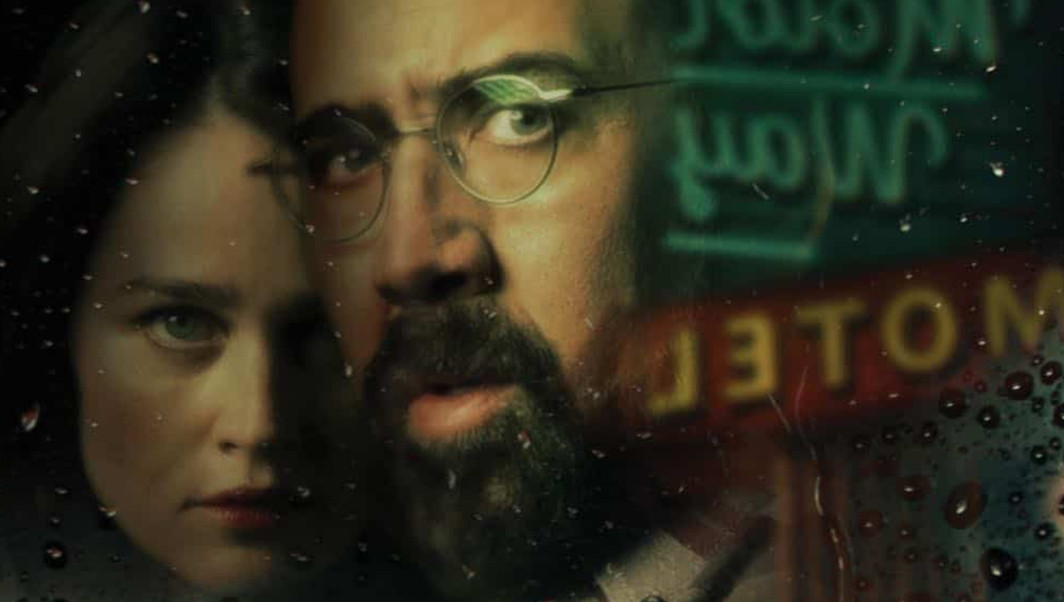Pop Culturalist Chats with Looking Glass’ Tim Hunter


Tim Hunter’s been in the business for a long time. His directing career spans more than three decades and he has had experience directing hundreds of actors and actresses. Tim also had a hand through the years directing episodes of wildly popular and critically acclaimed shows such as 90210, Twin Peaks, Riverdale, Breaking Bad, Gotham, and Glee.
His most recent project is the movie Looking Glass, starring Nicolas Cage, Robin Tunney, and Marc Blucas. Cage and Tunney play a couple who buy a quaint desert motel in the middle of nowhere, but things turn south when a motel guest ends up dead and reveals the previous owner’s dark secret.
We had so much fun chatting with Tim and getting a peek behind the director’s curtain.
PC: Tell us about Looking Glass and how you got involved with this project.
Tim: The producer sent the script to me with Nicolas Cage already attached. It was in the neo-noir murder/mystery genre, which I love, and I was looking to get back into features after years of mostly doing television. What I liked about it was that it was about a conflicted man and couple. He wants to be faithful to his wife and stay in their marriage even though he’s transgressed. He’s drinking too much, taking pills, and their daughter fell off the balcony and died. So, they’re in a precarious place. Trying to start a new life which is always a good place to start a picture I think. Despite his best intentions there, there’s an unresolved need inside of him and that’s where the sex, murder-mystery voyeurism story in the plot played to.
PC: You mentioned that you directed a lot of TV. What are some of the major differences between shooting a TV show verses shooting a full-length feature film?
Tim: TV is a producers’ and writers’ medium more than a directors’. You know, obviously there are exceptions, but a freelance director like me comes in as a hired gun. What’s both challenging about it, and what I like about it, is that I go from show to show and I meet a whole bunch of people: new cast, new crew, etc. You also learn what the producer thinks the look of the show should be—the style—and I feel like I get to be a chameleon when it comes to that. In TV, you’re shooting a 50-55 page script in often seven or eight days. A feature is more under the control of a director and less putative in terms of the schedule. You can explore the performances with the actors a lot longer, you can get extra set-up time, include more of the world around them, and add more texture.
PC: You mentioned Nicolas Cage, and you’ve worked with a lot of actors in your career. What did you learn about the working styles of Nicolas, Robin, and Marc in this movie?
Tim: I’ve worked with Robin in the past and we always chatted about collaborating on another project together. The same with Marc, who I’ve done two shows with—Necessary Rough and Underground—so I thought of him for the part because I knew what he could do. I’ve never worked with Nicolas Cage, though, and as you know, he does several pictures in any given year, so one wonders how he’s able to relate to any individual picture because he goes from one to another, but boy, he just showed up and knew the script of Cole, thought the character through, and knew exactly what he wanted to do. I identified just a few key scenes where I thought maybe we could get a little more emotion and background for the audience out of them and he was receptive to that as long as he understood the goals that we were reaching for. He just was a total pro and completely committed to it. All the other actors were dying to work with Nicolas and loved working with him. He just brought everybody’s game up by just being so clearly committed to it. It’s wonderful, and I guess he’s like that with all these pictures—he’s great in all of them.
PC: If you had to pick one scene from Looking Glass that you are excited for audiences to see what would it be and why?
Tim: Some of my favorite scenes in the film are when Nicolas Cage’s character is looking out the blinds from his back office into the parking lot, watching people come and go, and trying to figure out what’s going on. To me, there’s this sort of metaphor of seeing everything and seeing nothing at the same time in those scenes, and plus they’re some of the most Hitchcockian scenes because they deal with a very straightforward point-of-view going back and forth between the watcher and what he’s watching.
Check out Looking Glass in theaters now and on VOD.
Recent Posts
Exclusive Interview: Devin Das and Parker Seaman Tell a Story Only Real Friends Could Pull Off in ‘Wes Is Dying’
Devin Das and Parker Seaman make films that catch you by surprise—not through spectacle, but…
Win Tickets to a NYC Screening of The Accountant 2
Pop Culturalist is excited to be partnering with Amazon MGM Studios to give away tickets…
With ‘Warfare,’ Ray Mendoza and Alex Garland Deliver the Most Unflinching War Film in Years
Warfare opens with no introductions, no origin stories, no guiding hand. What follows is not…
Exclusive Interview: Christopher Landon on Blending Suspense, Heart, and Nostalgia in ‘Drop’
Christopher Landon has long been a master of genre reinvention. From the biting satire of…
Win Tickets to a NYC Screening of Sinners
Pop Culturalist is excited to be partnering with Warner Bros. Pictures to give away tickets…
“She’s Hugh’s First Victim”: Danielle Savre Breaks Down Lena’s Past, Present, and What Could Be Ahead on ‘Found’
Ever since Danielle Savre joined Season 2 of Found as Heather, fans have been trying…

